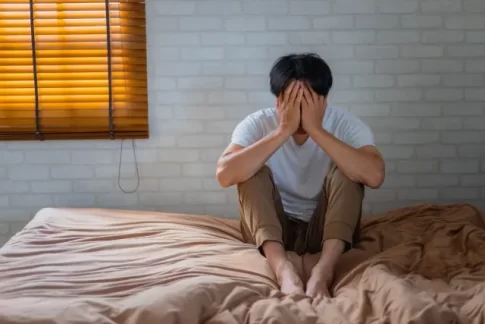この記事の概要
ED (erectile dysfunction) is a very sensitive issue for men and can cause complicated feelings and reactions in a partnership. Understanding how women also face this issue, how they feel about it, and how they would like to do it in the future is important in maintaining and improving the relationship. This article explores women's perspectives on and reactions to ED and details how factors such as empathy, communication, and stress can affect the relationship.
ED (erectile dysfunction) is a very sensitive issue for men and can cause complicated feelings and reactions in a partnership. Understanding how women also face this issue, how they feel about it, and how they would like to do it in the future is important in maintaining and improving the relationship. This article explores women’s perspectives on and reactions to ED and details how factors such as empathy, communication, and stress can affect the relationship.
1. Understanding and Empathy
- Empathetic response: many women show empathy when their partners are suffering from ED. They often try to understand and support the psychological burden and impact of ED on their partner’s self-esteem.
- Open communication: Many women are willing to discuss openly with their partners and try to solve problems together. Finding a cure together can strengthen their relationship.
2. Anxiety and its impact on self-evaluation
- Low self-esteem: Some women may perceive their partner’s ED as a problem with their own attractiveness or sexuality. They may feel insecure that they are no longer attractive, and their self-esteem may decline.
- Decreased sexual satisfaction: persistent ED can also decrease a woman’s sexual satisfaction. This can lead to frustration and irritation, but often women tend to suppress their feelings because they do not want to hurt their partner’s feelings.
3. Misunderstandings and Communication Gaps
- Risk of Misunderstanding: In the absence of open communication about EDs, women may misunderstand the causes and context of EDs. For example, they may suspect that their partner is no longer interested in them or is cheating on them.
- Emotional distance: Lack of communication can lead to emotional distance, which can worsen the relationship. Women may feel helpless and alone in the face of their partner’s unwillingness to discuss issues.
4. Strengthening Partnerships
- Cooperation in problem solving: Many women view ED as a problem that needs to be solved together and are cooperative in their treatment. They try to support their partners by going to doctor’s appointments together and making lifestyle changes.
- Emphasis on non-sexual intimacy: Some women value non-sexual intimacy (e.g., skinship, emotional connection) and see it as an opportunity to reevaluate the entire relationship.
5. Stress and Pressure
- Increased pressure: If a woman feels that the ED is her fault or that she is too eager to help her partner, she may feel unconsciously pressured. This can affect natural feelings and behaviors during sexual activity and exacerbate the problem.
- Sharing Stress: It is not only men who experience stress due to ED; women do as well. Anxiety about their partner’s health and relationship can bring stress to women as well.
6. Reevaluating Relationships
- Rethinking the relationship: persistent ED may cause a woman to reevaluate the relationship.Decreased sexual satisfaction and poor communication may affect the long-term relationship.
- Risk of Divorce or Separation: If the ED remains unresolved, there is a risk of relationship breakdown, especially if it overlaps with other relationship issues. However, this is often the case when there is a lack of communication or no effort to resolve issues.
Summary
Women’s reactions to EDs vary widely depending on their individual feelings, values, and the depth of their relationship, but one common thread is the importance of open and honest communication. While many women are supportive of their partners and willing to work together to find solutions, misunderstandings, low self-esteem, and stress can also affect the relationship. This will strengthen the relationship and build a better partnership.













